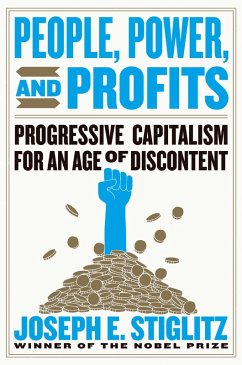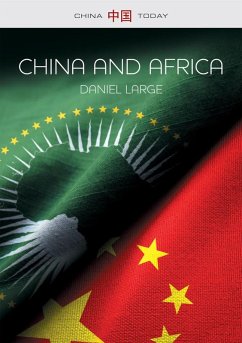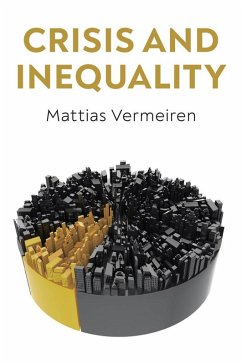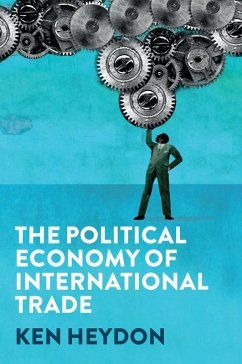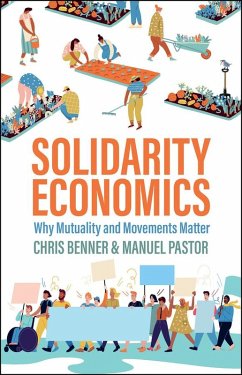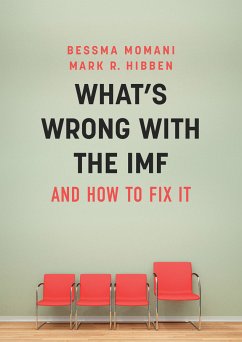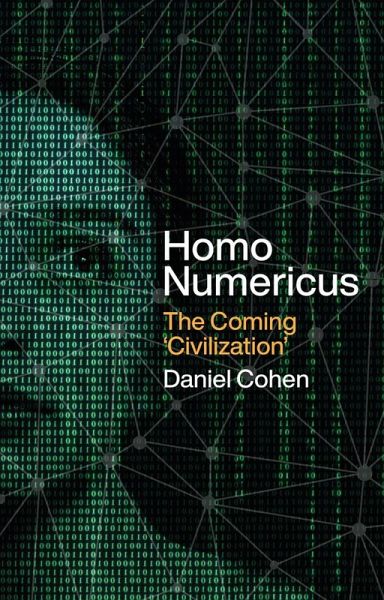
Homo Numericus (eBook, ePUB)
The coming 'civilization'
Übersetzer: Rendall, Steven
Versandkostenfrei!
Sofort per Download lieferbar
18,99 €
inkl. MwSt.
Weitere Ausgaben:

PAYBACK Punkte
0 °P sammeln!
From Amazon to Tinder, from Google to Deliveroo, there is no facet of human life that the digital revolution has not streamlined and dematerialized. Its objective was to reduce costs by forgoing face-to-face interactions, and it was a direct result of the free-market shock of the 1980s, which sought to expand the marketplace seamlessly in every possible dimension. Today, we can be algorithmically entertained, educated, cared for, and courted in a way that was impossible in the old industrial society, where institutions structured the social world. Today, these institutions have been replaced b...
From Amazon to Tinder, from Google to Deliveroo, there is no facet of human life that the digital revolution has not streamlined and dematerialized. Its objective was to reduce costs by forgoing face-to-face interactions, and it was a direct result of the free-market shock of the 1980s, which sought to expand the marketplace seamlessly in every possible dimension. Today, we can be algorithmically entertained, educated, cared for, and courted in a way that was impossible in the old industrial society, where institutions structured the social world. Today, these institutions have been replaced by monetized virtual contact.
As the industrial revolution did in the past, the digital revolution is creating a new economy and a new sensibility, bringing about a radical revaluation of society and its representations. While obsessed with the search for an efficient management of human relations, the new digital capitalism gives rise to an irrational and impulsive Homo numericus prone to an array of addictive behaviours and subjected to intensive forms of surveillance. Far from producing a new agora, social media produce a radicalization of public debate in which hate-filled speech directed against adversaries becomes the norm.
But these outcomes are not inevitable. The digital revolution also offers an exciting path, one that leads to a world in which everyone deserves to be listened to and respected. It explores a new way of living that is historically unprecedented, that of a society based neither on individualism nor on the hierarchical model of earlier civilizations. Are we able to seize the new opportunities opened up by the digital revolution without succumbing to its dark side?
As the industrial revolution did in the past, the digital revolution is creating a new economy and a new sensibility, bringing about a radical revaluation of society and its representations. While obsessed with the search for an efficient management of human relations, the new digital capitalism gives rise to an irrational and impulsive Homo numericus prone to an array of addictive behaviours and subjected to intensive forms of surveillance. Far from producing a new agora, social media produce a radicalization of public debate in which hate-filled speech directed against adversaries becomes the norm.
But these outcomes are not inevitable. The digital revolution also offers an exciting path, one that leads to a world in which everyone deserves to be listened to and respected. It explores a new way of living that is historically unprecedented, that of a society based neither on individualism nor on the hierarchical model of earlier civilizations. Are we able to seize the new opportunities opened up by the digital revolution without succumbing to its dark side?
Dieser Download kann aus rechtlichen Gründen nur mit Rechnungsadresse in D ausgeliefert werden.






